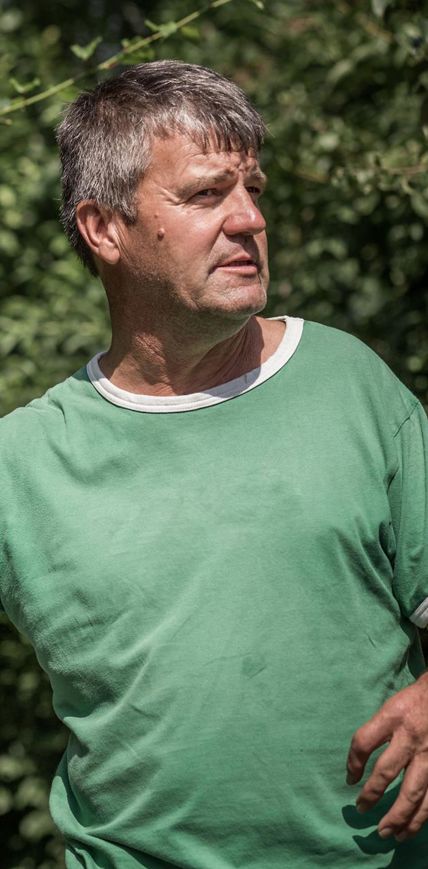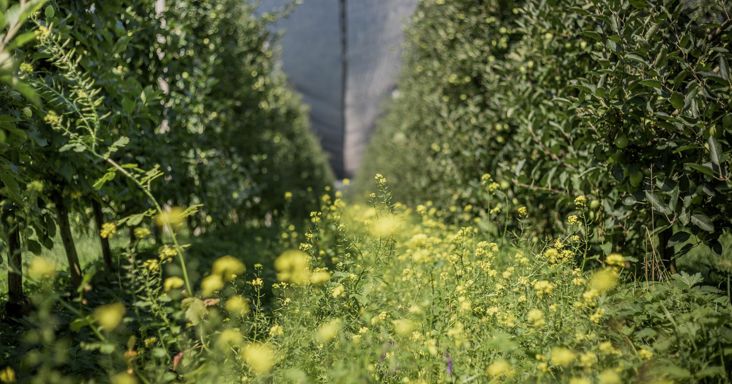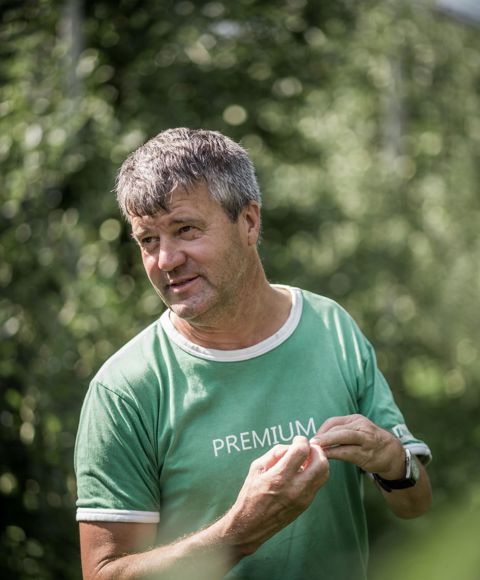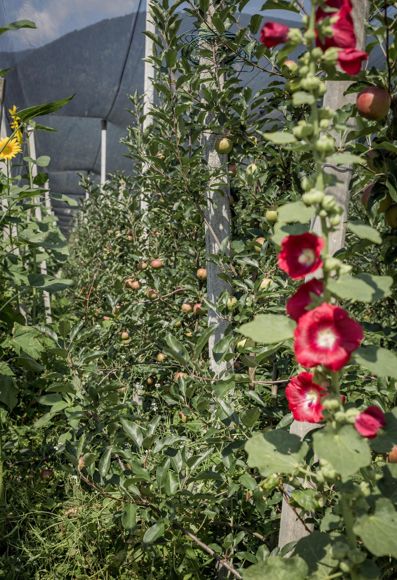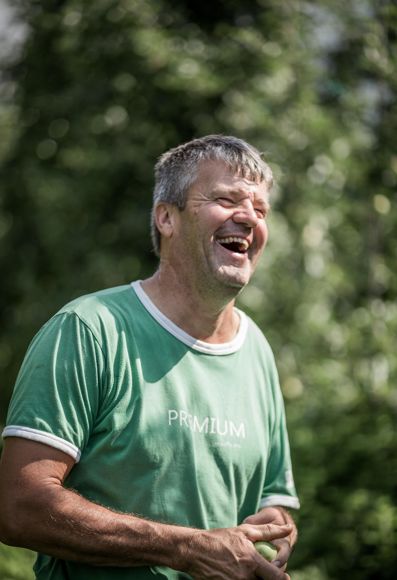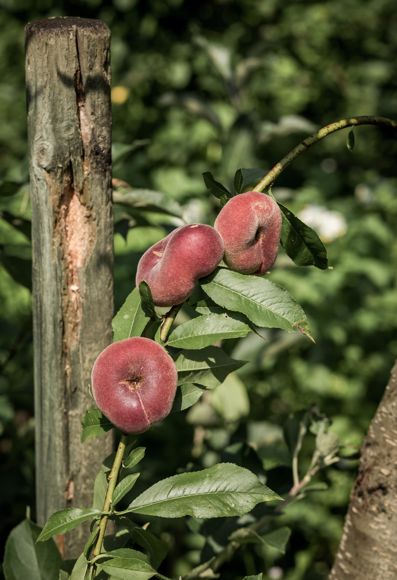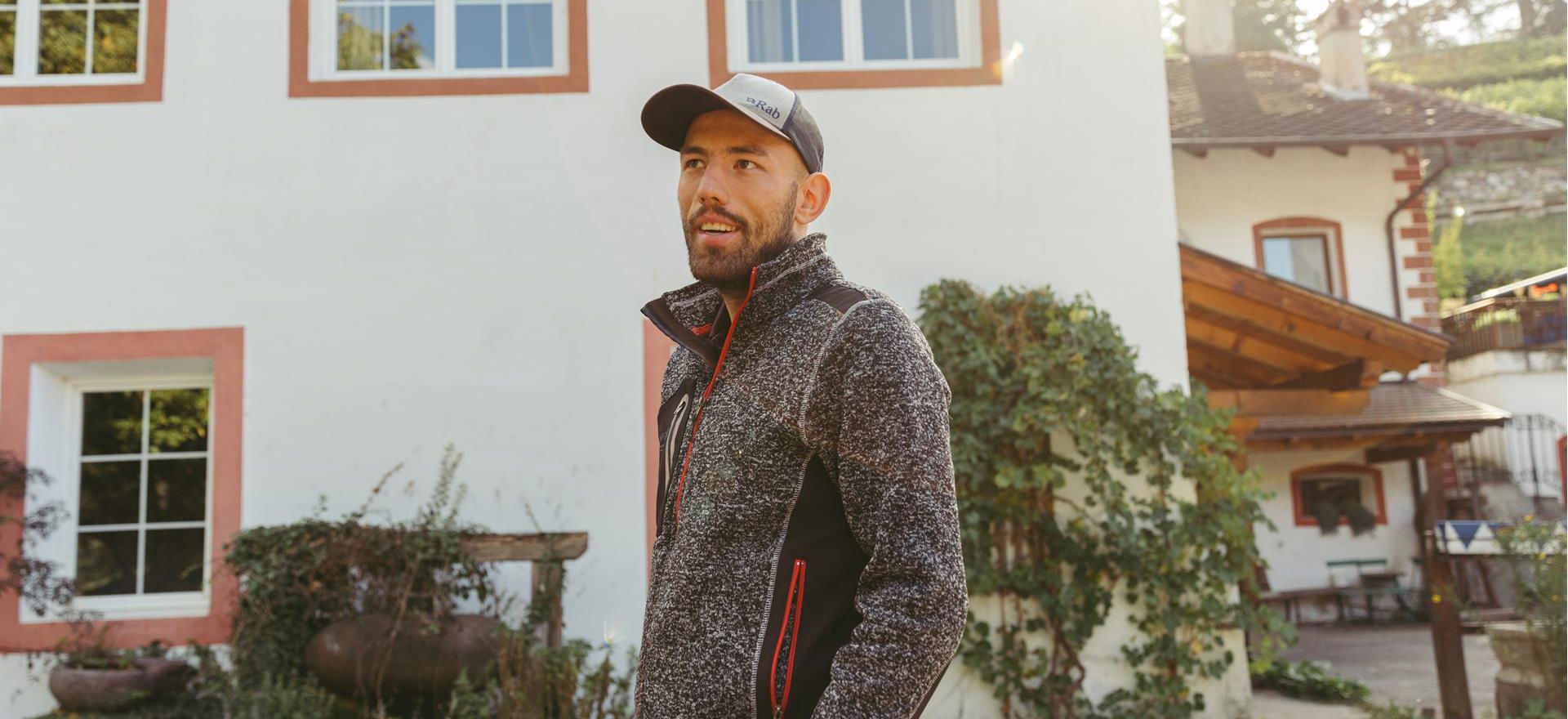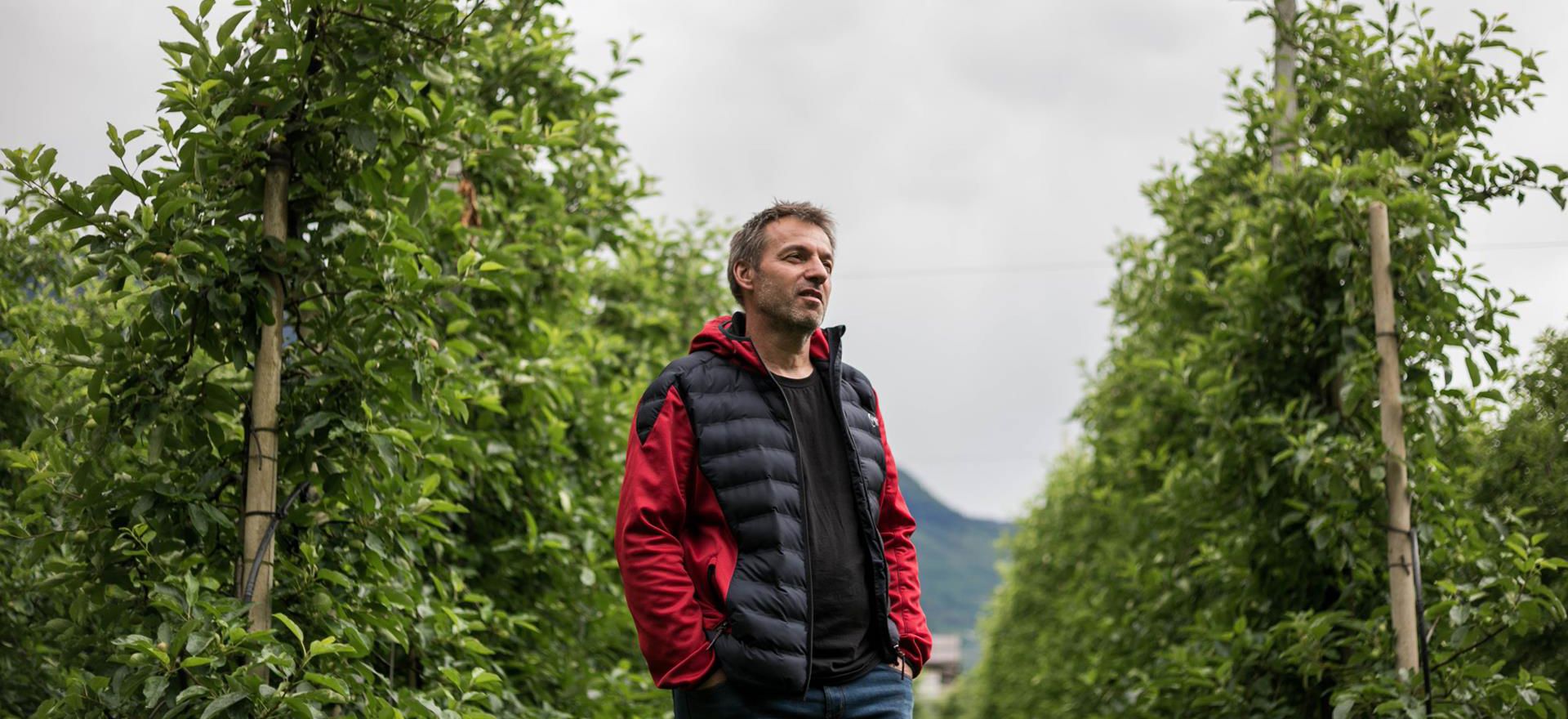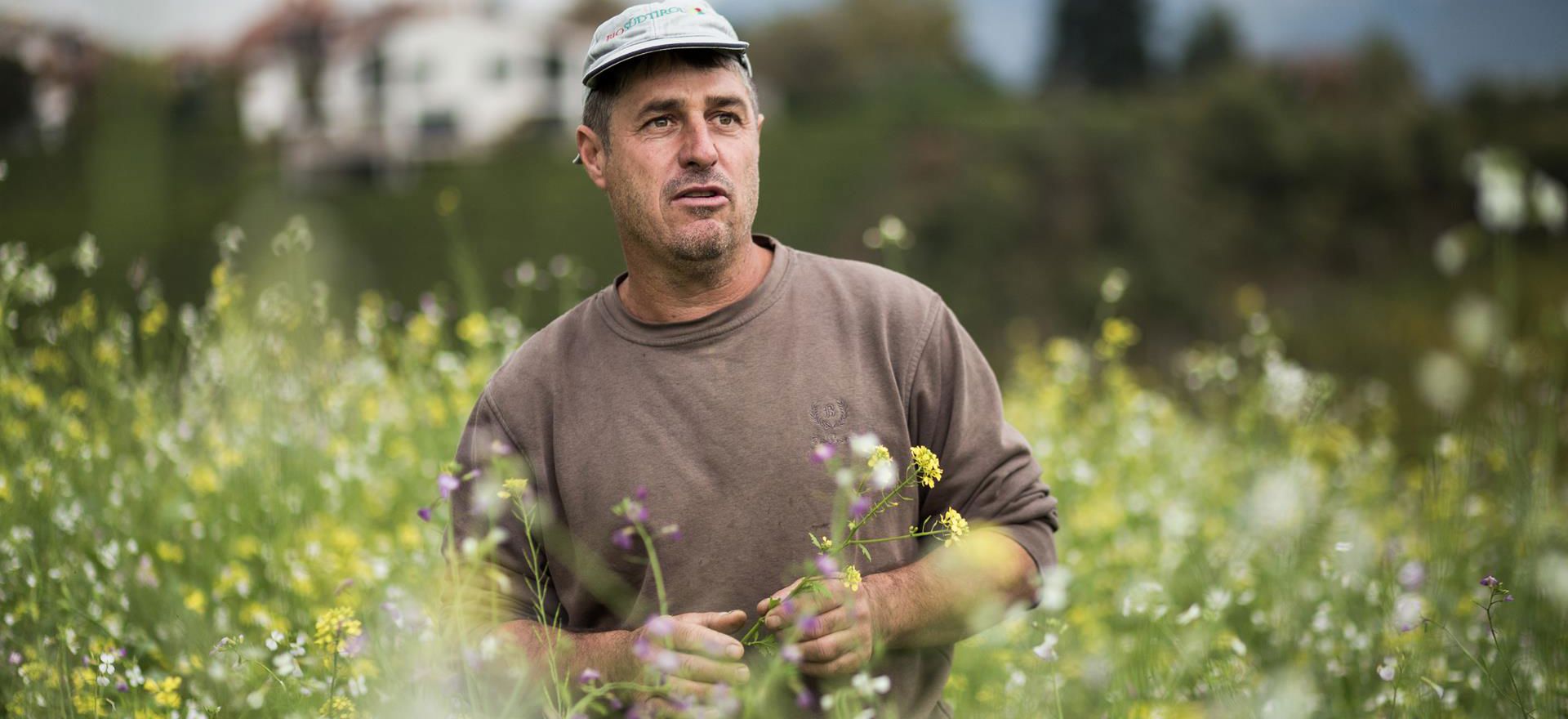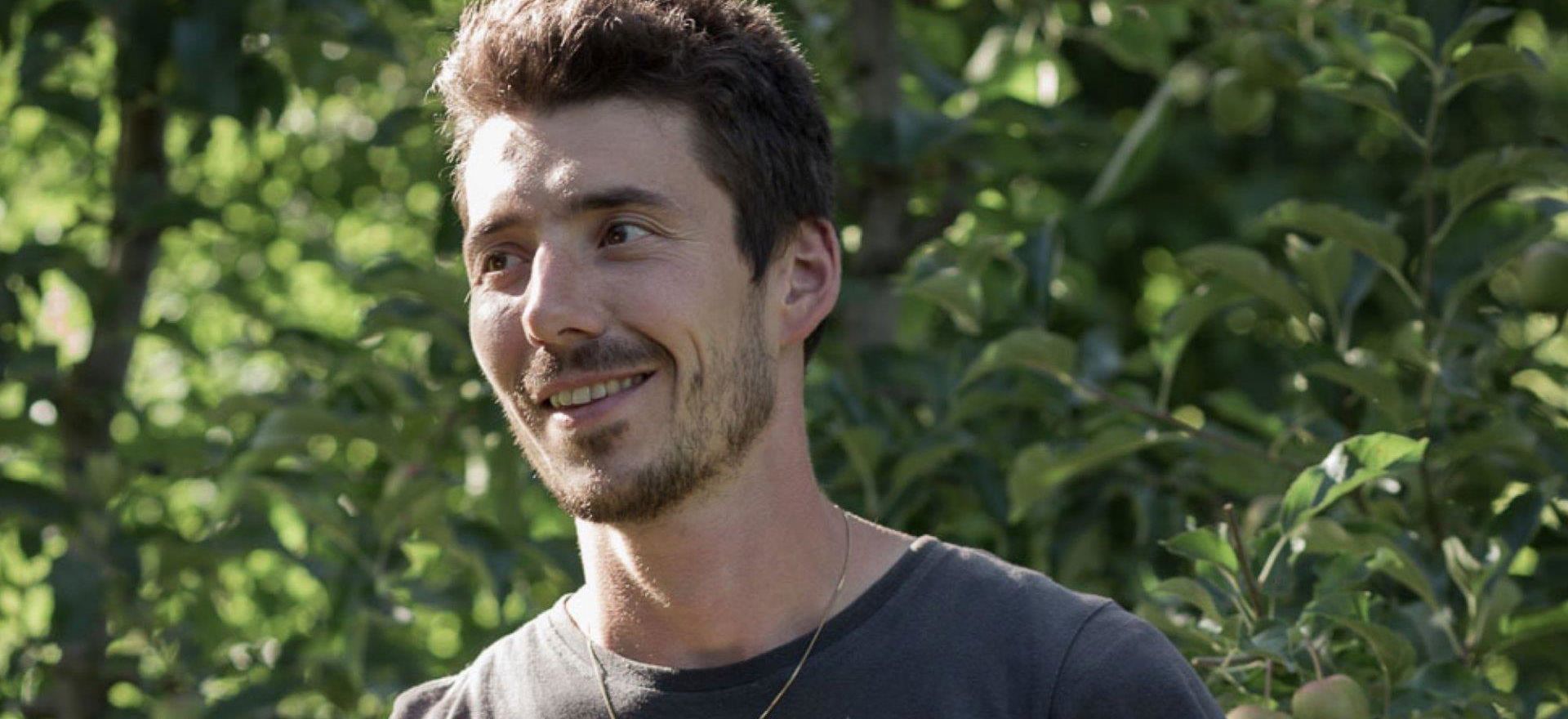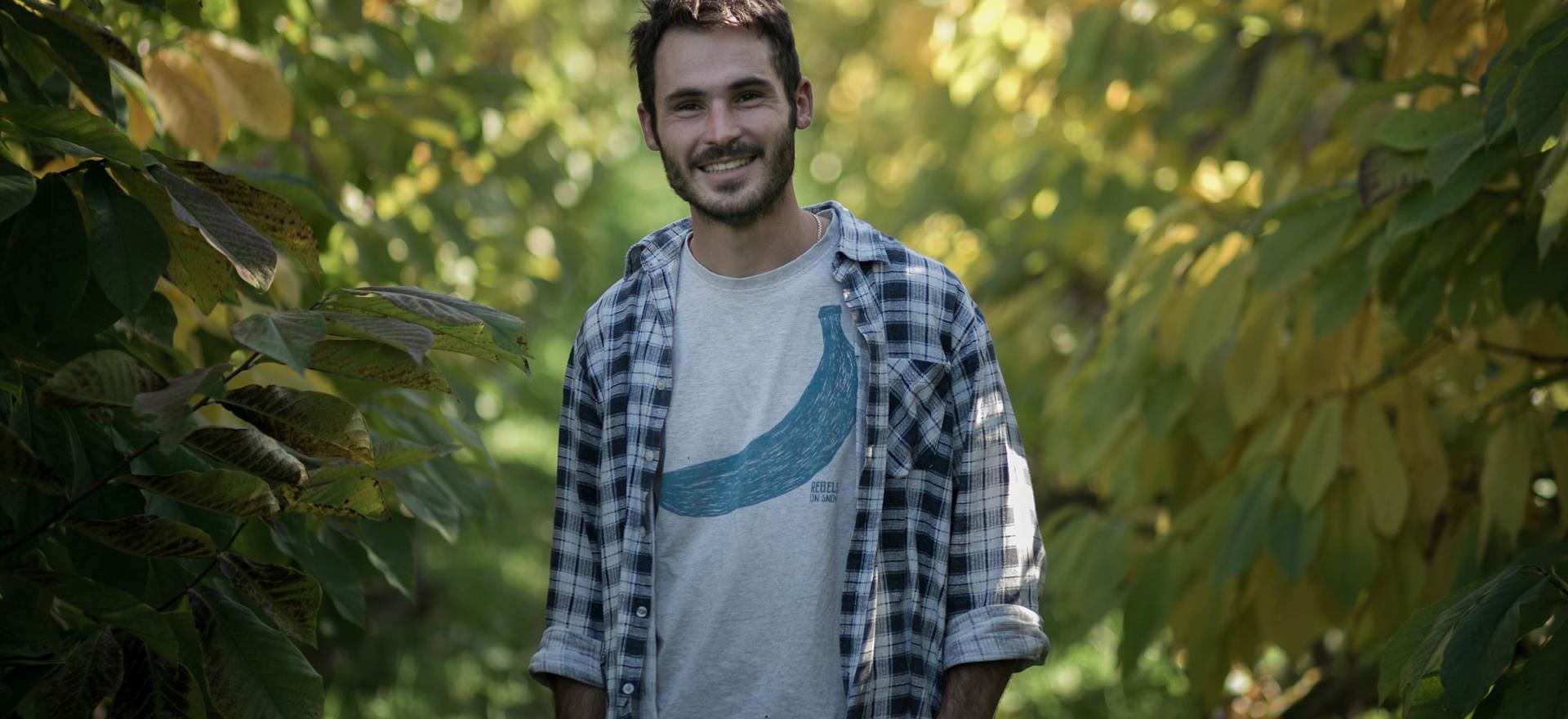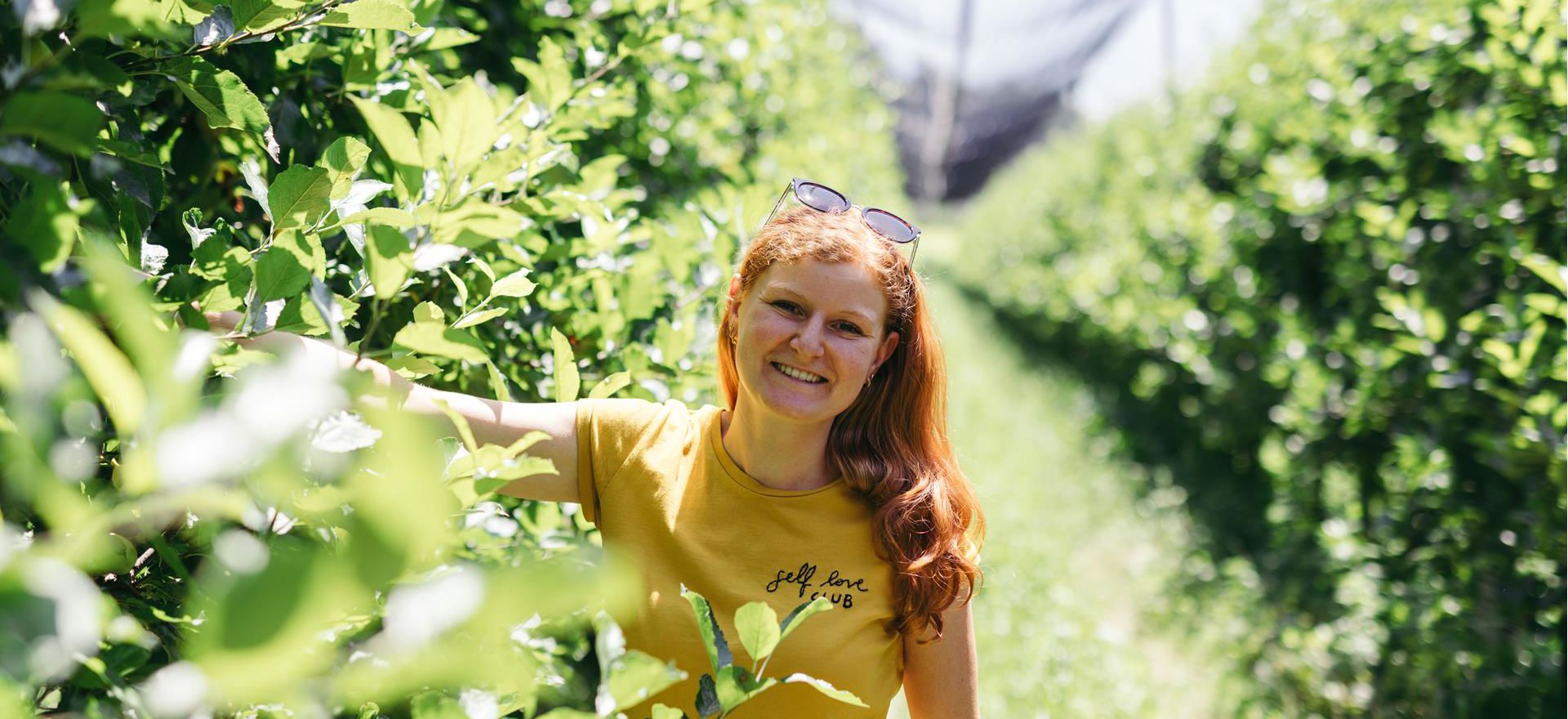There is a South Tyrolean saying: “You’re either born a farmer or you marry a woman from a farming family.”
Othmar Malleier is the exception to the rule: He was a lithographic artist and definitely didn’t marry with a view to becoming a farmer. As technological progress meant printing machines increasingly took over his job, he found a new professional home in nature. Together with a friend, he established a market garden. He poured his time and energy into it. Days, hours, minutes were eaten up by it and too little remained for his family. Finally, he decided to sell the market garden and acquired a small piece of land a comfortable cycling distance from the family home. Othmar has now become a part-time farmer. On the side, he tends his garden and for ten years he has guided visitors around the gardens of Castle Trauttmansdorff in Meran.


